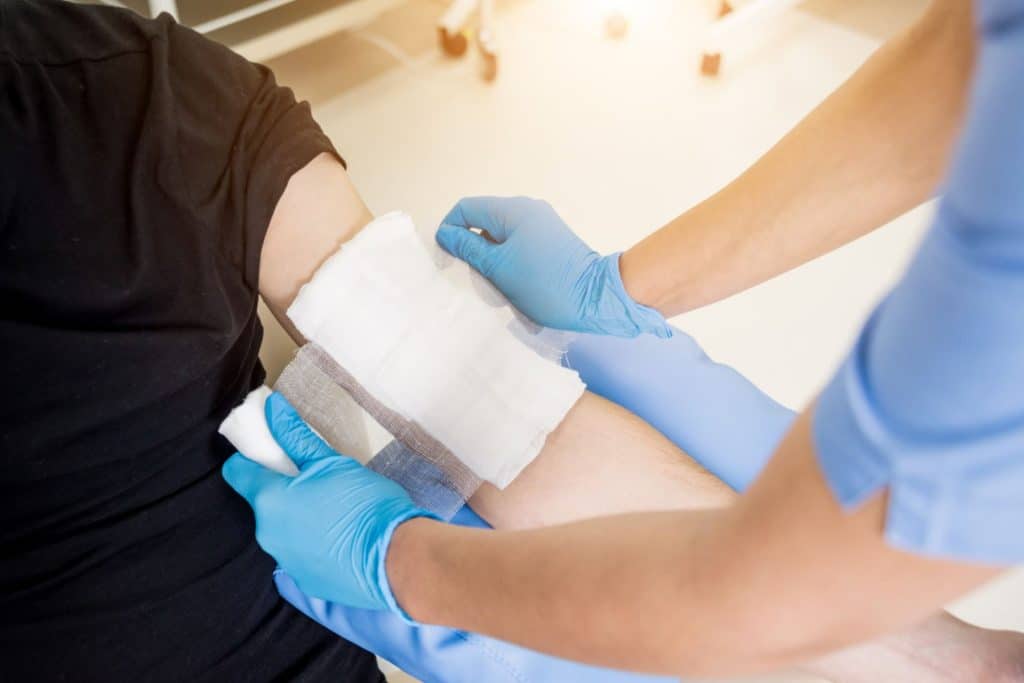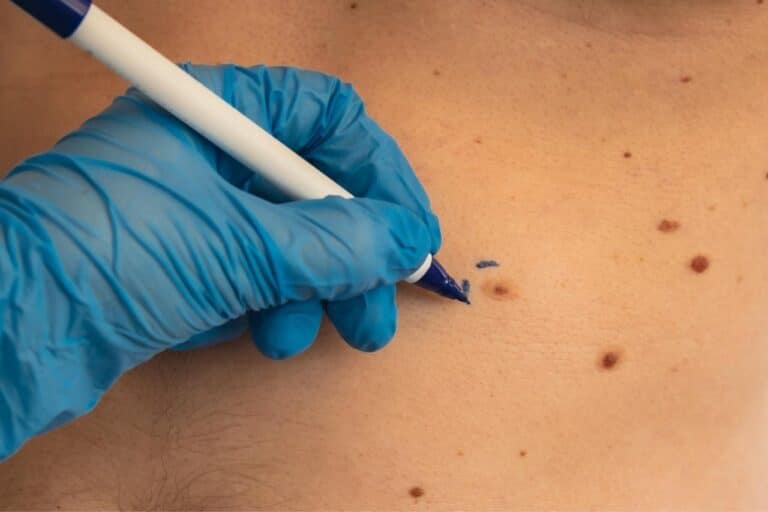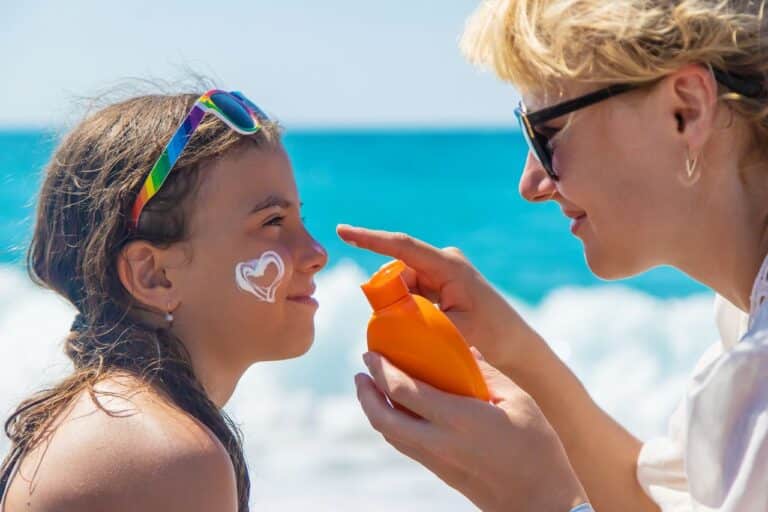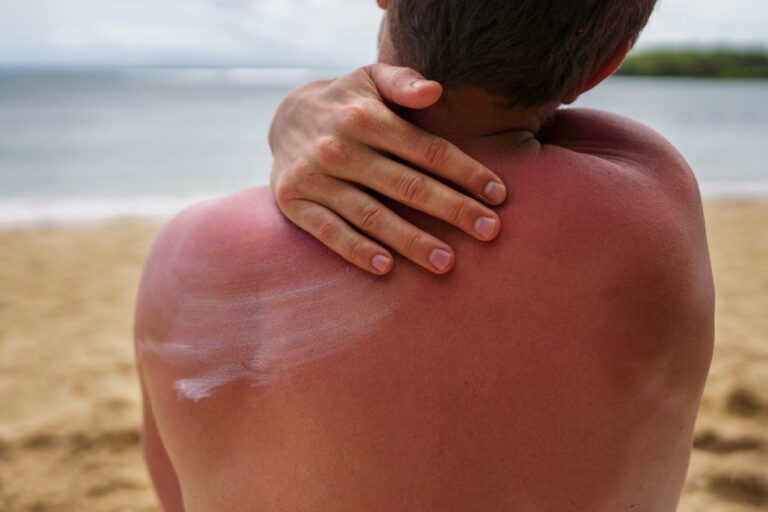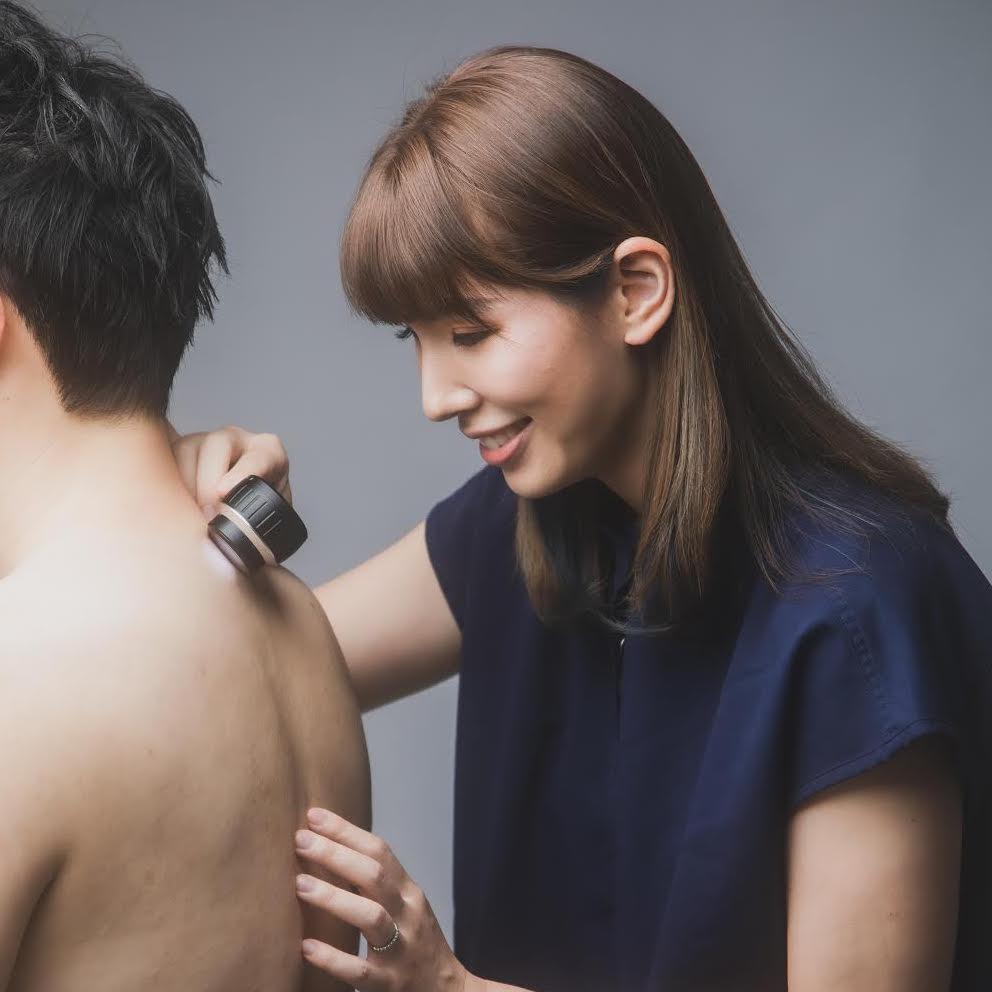Biopsy (Punch/Shave)
You have had a skin biopsy today, which may have been a shave biopsy (removal of a thin layer of skin) or a punch biopsy (removal of a small deeper sample of skin). Below is some guidance on what to expect and how to care for your wound.
What to Expect
- Bleeding: Minor bleeding or oozing is normal for the first 24 hours. Apply firm pressure with a clean cloth for 10–15 minutes if needed.
- Pain: You may experience mild discomfort once the local anaesthetic wears off. Simple pain relief such as paracetamol can be taken if needed. Avoid aspirin or ibuprofen unless prescribed, as they can increase bleeding.
- Redness & Swelling: Some redness is normal, but if it spreads or is accompanied by warmth or pus, seek medical advice.
- Bruising: More common if the biopsy was on the lower leg or if you take blood thinners.
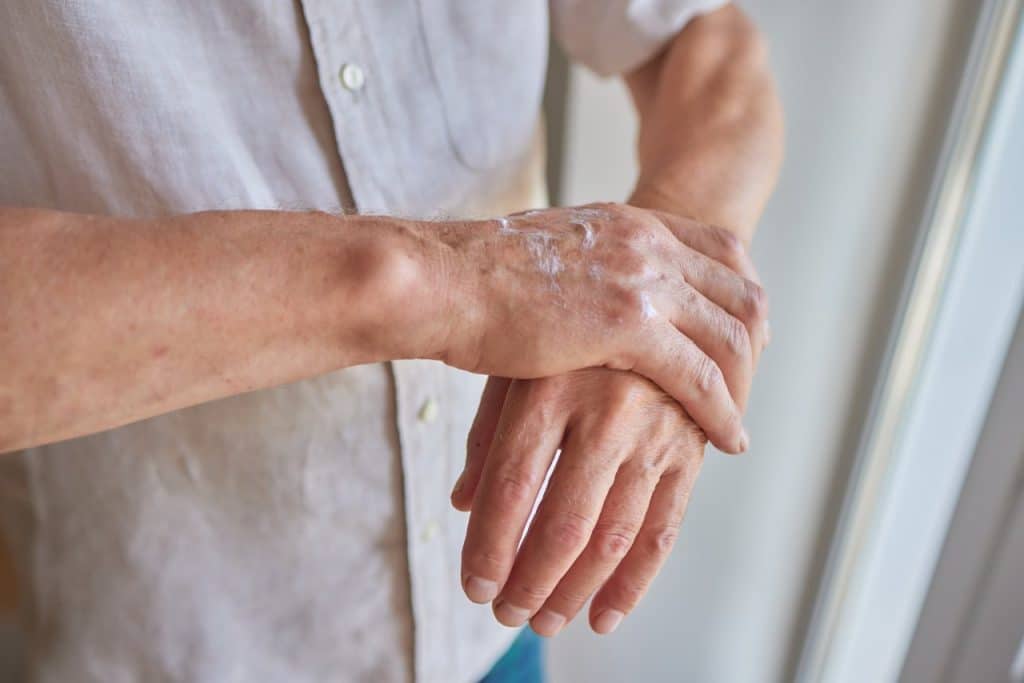
Wound Care
- Keep the wound clean and dry for 24–48 hours. After this, gently wash with soap and water and pat dry.
- Apply a thin layer of petroleum jelly (Vaseline) and cover with a non-stick dressing.
- Change the dressing daily or if it becomes wet or dirty.
When to Seek Help
- Persistent bleeding despite 15 minutes of firm pressure.
- Signs of infection (increasing redness, swelling, warmth, pus, or fever).
- Wound breakdown (edges pulling apart).
Results
Your results will usually be available in 1–2 weeks. We will contact you to discuss them. If you have not heard from us by then, please call the clinic 07 3472 7477 .
For any urgent concerns, contact our clinic or seek medical attention.

